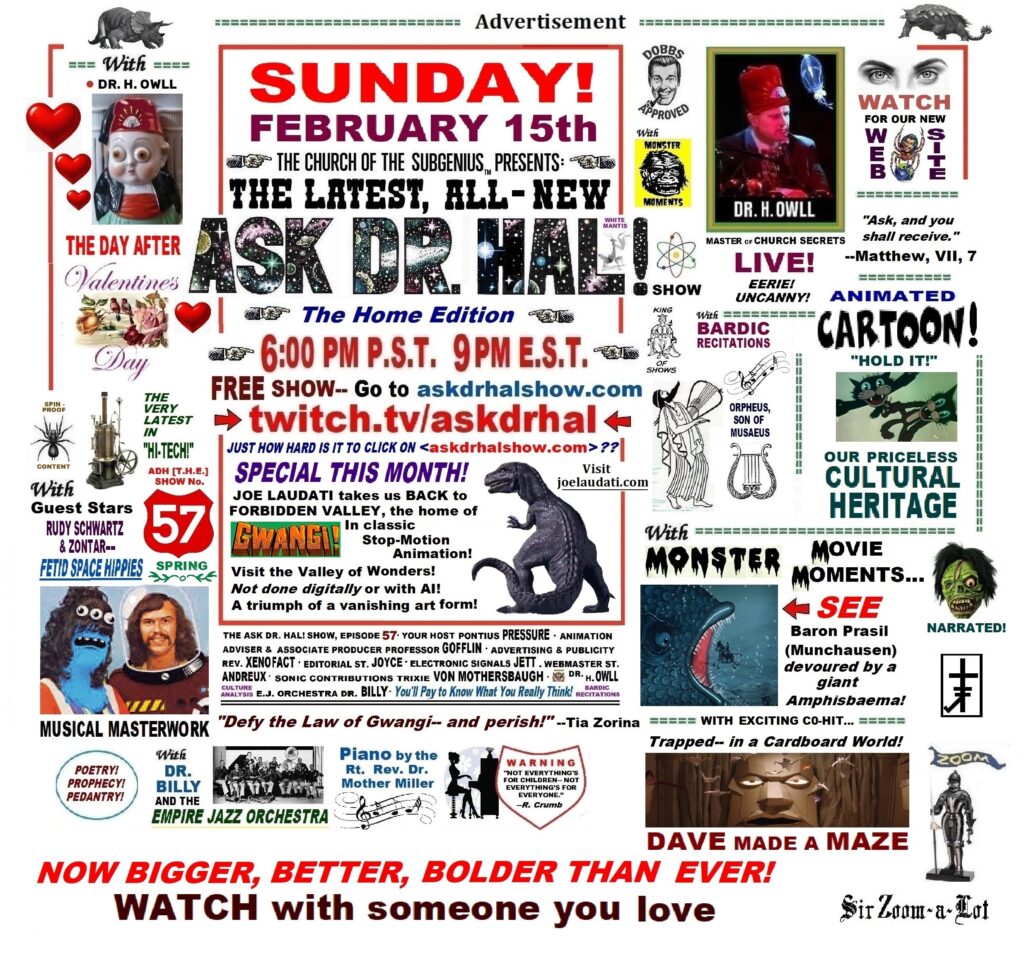I help out on the Ask Doctor Hal Show and can thoroughly recommend this intellectually stimulating experience!
To find everything you need to join, follow, and ask questions click here!

Home of Xenofact, Interdenominational Man of Mysticism
I help out on the Ask Doctor Hal Show and can thoroughly recommend this intellectually stimulating experience!
To find everything you need to join, follow, and ask questions click here!

Once there was a king who was proud and arrogant. He was given the crown but thought he earned it.
“Nobody can defeat me!” he said.
He chose minions who were craven and crawling. They always praised him so they could gain.
“Yes, Nobody can defeat you,” they said in a chorus.
The King stole and started wars. His thugs were turned loose to terrorize people. He destroyed ancestral monuments and antagonized allies.
“Nobody can stop me!” he said.
Most of the People hated the King, and the few who loved him were fools or liars. The People rose up against the King to put a stop to his. So many hated him that few wanted to serve him, even as he offered lavish gifts of stolen money.
“What is going on?” The King asked. “People are rising against me! Arrest Somebody!”
His minions found Somebody to arrest. The King was satisfied. Surely now that Somebody was gone the People would learn their lesson – Nobody could defeat him.
But the People pushed back even harder. His thugs were cornered and outmaneuvered, and many took to drink to drown their sorrows. Across the Kingdom the King’s name was spat like a curse.
“They did not learn their lesson!” The King screamed. “They dare to rise up against me! Kill Somebody!”
The King’s minions looked around. Some were scared. The King was clearly mad. The People were angry. Moreso the minions all hated each other nearly as much as they hated The People.
“Kill Somebody!” The King thundered, spraying spittle.
The King’s minions made sure to kill Somebody. Then,the King settled down, but he was still worried.
“Nobody can defeat me,” the King would whisper to himself.
The next day the King awoke to People escorting him and his family out of the castle. He cried for help, but none helped him, from the cooks in the kitchen to the guards he relied on. His minions were gone, doubtlessly scattered, captured, or turning on each other.
He didn’t recognize any of the People throwing he and his family out of the Castle. Not a one of them.
“How dare you!” The King screamed at them. “You’re Nobody!”
Then for the first and last time in his life, he understood something.
TWO Xenofact publications! Go get them!
Vault of Slack 10 – The SubGenius zine people who like to have things must have! WITNESS not just the traditional RANTRODUCTION but the first RESPONSE TO THE RANTRODUCTION. ENCOUNTER the Song of Slack in all of it’s glory. DISCOVER why The Conspiracy has gotten so lame! EXPERIENCE mind-enflaming rants and revelations and UNSPEAKABLE art! Must-have for people who like to have things! (24 pages counting cover) (Buy it in print at Ko-fi).
Xenofact’s Xine 11 – Does desire differ from basic urges? How much of our psychopathologies are just grasping? Do Conspiracy Theorists hate actual communities? Xenofact speculates on this and more! Also contains personal roundups on meditation, and reviews of books, zines, shows, and more. Plus plenty of his surrealist art! Rounds up his blog posts from November 2025 into January 2025. Available in print and PDF form (Print at ko-fi.com) (free PDF – itch.io or ko-fi.com).